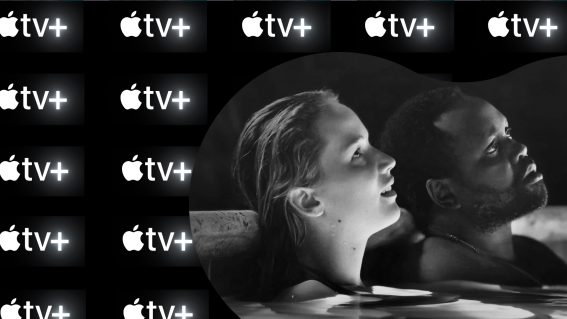Nuns, guns, magicians and all-knowing AI make Mrs. Davis irresistible
“This is Damon Lindelof having fun. And I am here for it.”
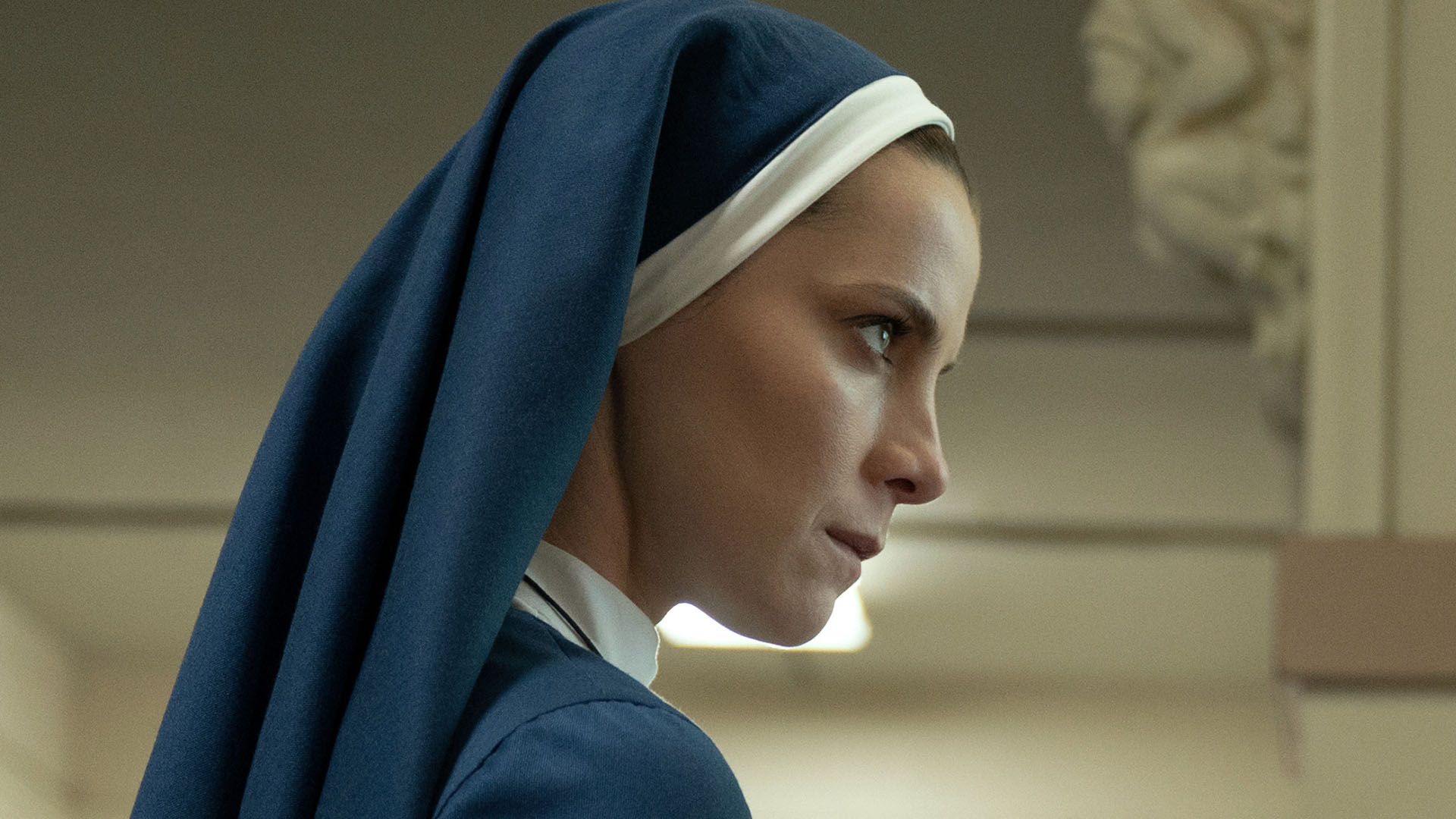
Damon Lindelof leans into the more outrageous genre elements of his past shows in Mrs. Davis. Dominic Corry attempts to describe the difficult-to-describe, irresistible new series.
Amongst the most visible TV writers of the last twenty years, one of the most notable things about Damon Lindelof is how his various projects always appear to be in conversation with each other.
After being the main creative driver of Lost, perhaps the most divisive TV show ever made, he seemed to channel the endless narrative conjecture surrounding it into his next TV project, The Leftovers. Then, almost as if he missed being the internet’s whipping boy, he chose to make a TV sequel to one of the most scrutinised comic books of all time, Watchmen.
If The Leftovers and Watchmen were Lindelof leaning into and developing some of the more dramatic aspects of what Lost explored, then Mrs. Davis is him leaning into that show’s crazier genre elements, and chilling out a bit. This is Damon Lindelof having fun. And I am here for it.
Co-created with Tara Hernandez, a writer with prior credits principally in the Big Bang Theory extended universe, Mrs. Davis positively reeks of Lindelof’s storytelling tendencies—we are constantly being dropped into scenarios that provoke certain genre-based assumptions, then having the rug pulled out from under us. It’s positively delightful, especially when freed from the maudlin overtones of Lindelof’s last two shows.
Just as those two programmes weren’t without humour, Mrs. Davis is not without genuine stakes and drama, but there is a playfulness to it that makes it such an irresistible, breezy watch. And it cuts a nice line in casual gore, too.
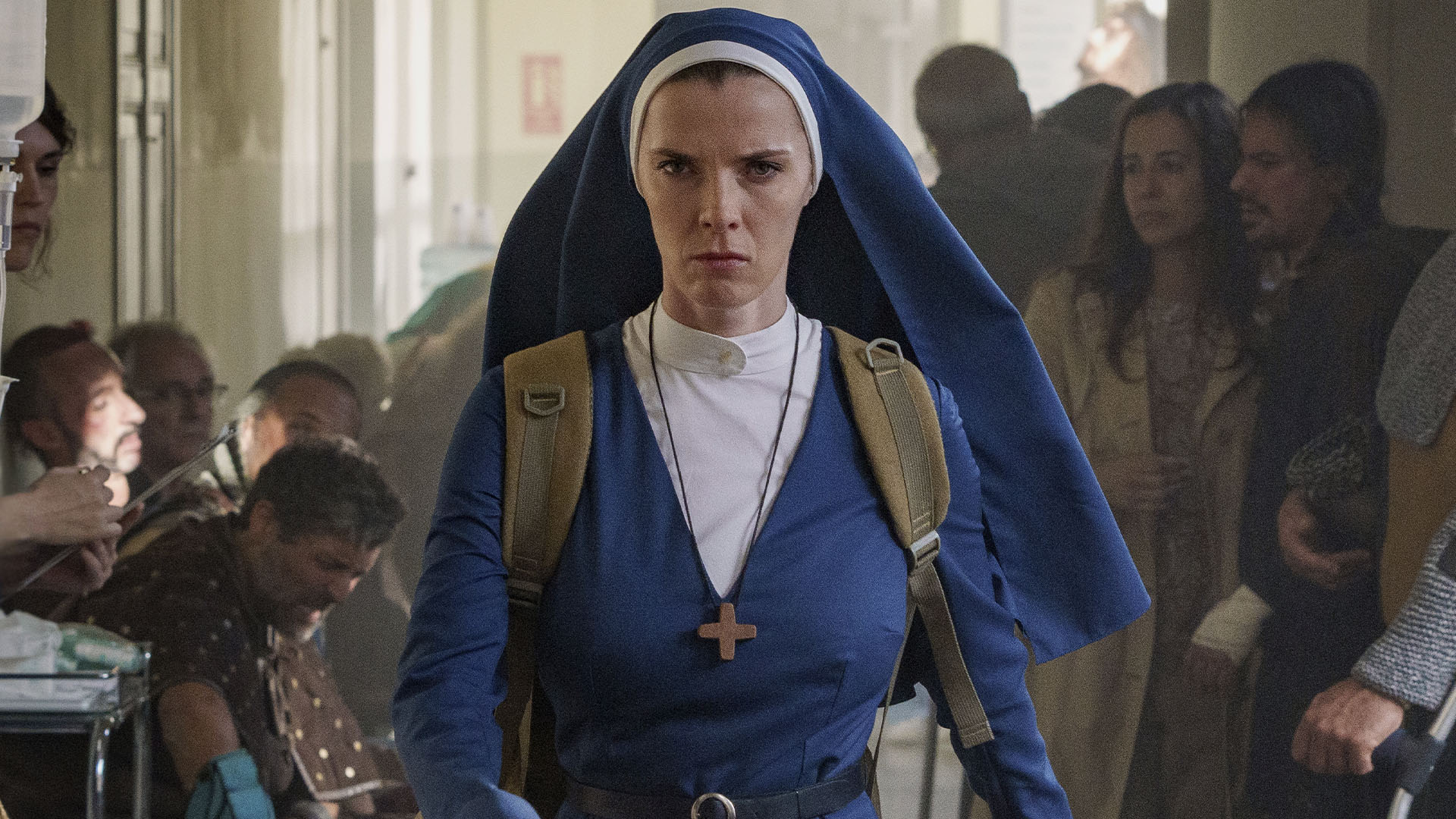
As mentioned above, Mrs. Davis delights in subverting your narrative assumptions, so I’m hesitant to tell you too much of the set-up, which only sort-of reveals itself throughout the first couple of episodes. So if the following seems a little obtuse, please bear with me.
Mrs. Davis takes place in an alternate 2023 that has been freed from war and poverty by an all-knowing artificial intelligence that gives the show its title. At first glance, this 2023 resembles our own, but the titular Mrs. Davis is pulling all the strings here.
Glow breakout Betty Gilpin, who shone in the Lindelof-produced 2020 movie The Hunt and should really be a bigger star by this point, stars as Simone, a nun who lives in a Nevada convent and refuses to speak to or interact with Mrs. Davis. Margo Martindale, who graduated from beloved character actor to legendary acting powerhouse during The Leftovers, plays her Mother Superior.
When circumstances lead to Simone accepting a “quest” from Mrs Davis, nothing less than the retrieval of the Holy Grail (it’s a long story as to why, but suffice to say, I timed my recent Last Crusade rewatch well), Simone finds herself back in the sphere of her ex-boyfriend Wiley (played by appealing journeyman actor Jake McDorman, covering up his familiar face with a Sam Elliott-in-Road House moustache), a member of an anti-Mrs. Davis cabal.
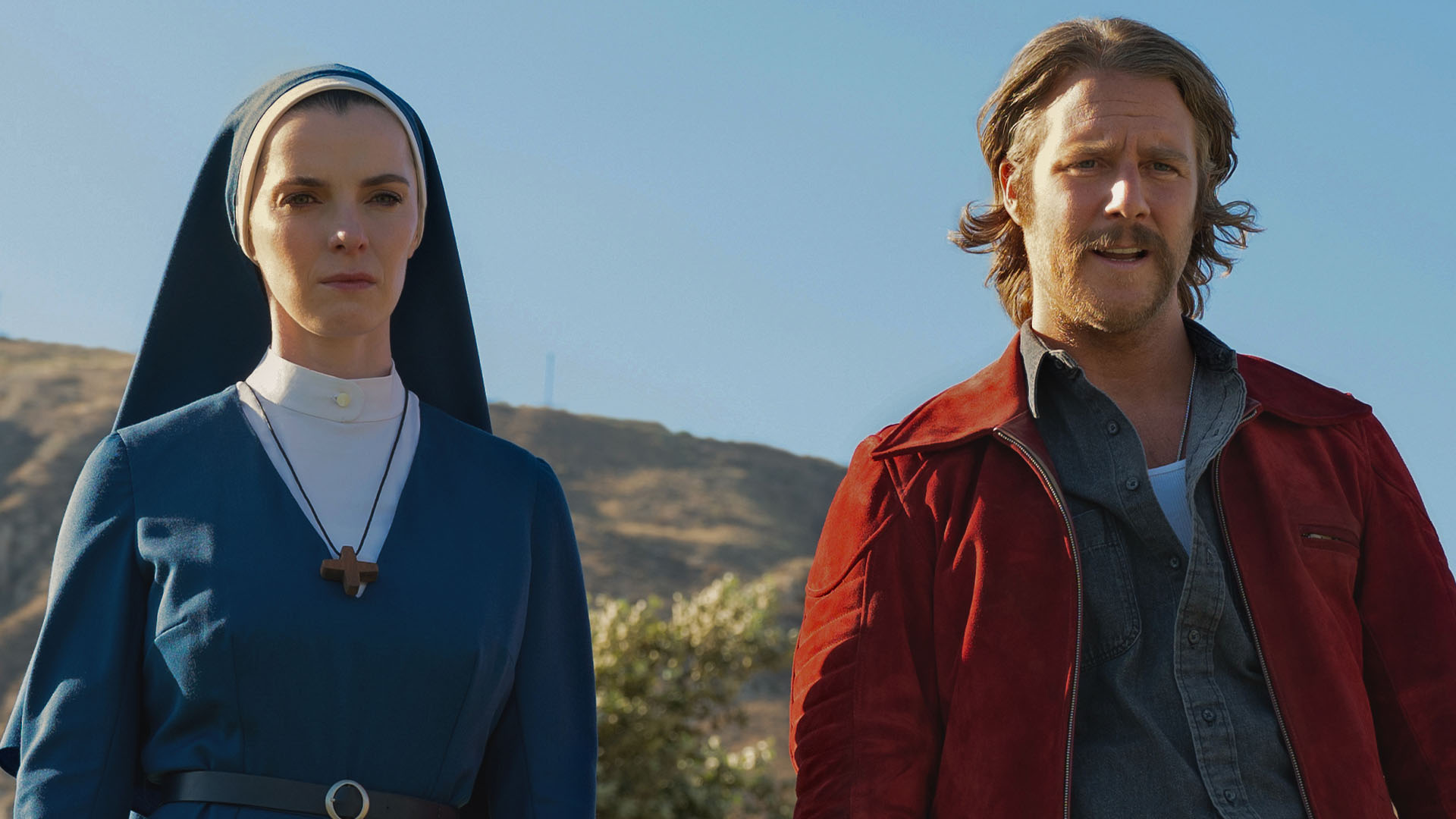
There’s plenty more to it than this, but the show seems to enjoy unfurling its story so much, it’s arguably best to go in as clean as possible. It can be confusing at times, but that seems to be the point.
Indeed, as salient as the show’s commentary on social media and algorithms is, it often seems to be about storytelling itself. We are not lacking for all-knowing artificial intelligences as antagonists these days (Westworld, Devs, Mission: Impossible – Dead Reckoning Part One) but Mrs. Davis feels less portentous and more satirical. And as a result, about a thousand times more relevant.
You could say it’s a post-Black Mirror show. One of its most Black Mirror-y concepts involves gaining “wings”, like those of an angel, perceivable only via augmented reality, and awarded by Mrs. Davis to certain citizens for completing quests.
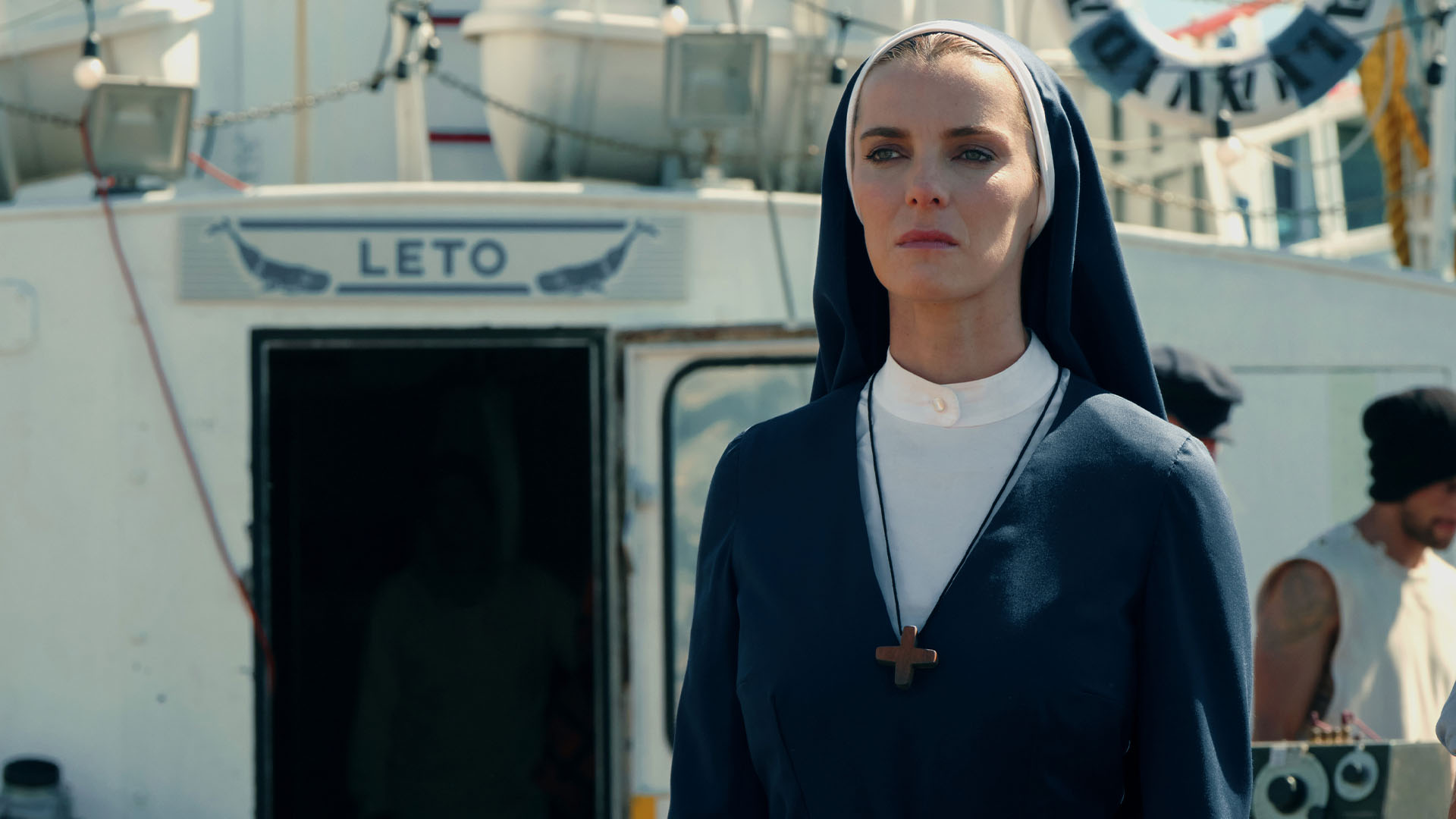
There are plenty more big crazy ideas introduced that are explored with agility, humour and the hilarious judgement of many of its viewers.
Lindelof has an enduring fascination with Australia strewn through almost all of his work, and it takes form here as a wonderful character named JQR (“You can call me JQ”) played by Chris Diamantopoulos with an amazing accent that further proves he is one of our most under-utilised comedic talents.
And there is recurring thread concerning magic (Teller is credited as a consultant) that seemed designed to lure me in. David Arquette as a stage magician? Yes please!
I think my only real complaint is the title, a perhaps deliberate obfuscation that does nothing to sell the show. But trust me, once you’re in, you’re in.

















